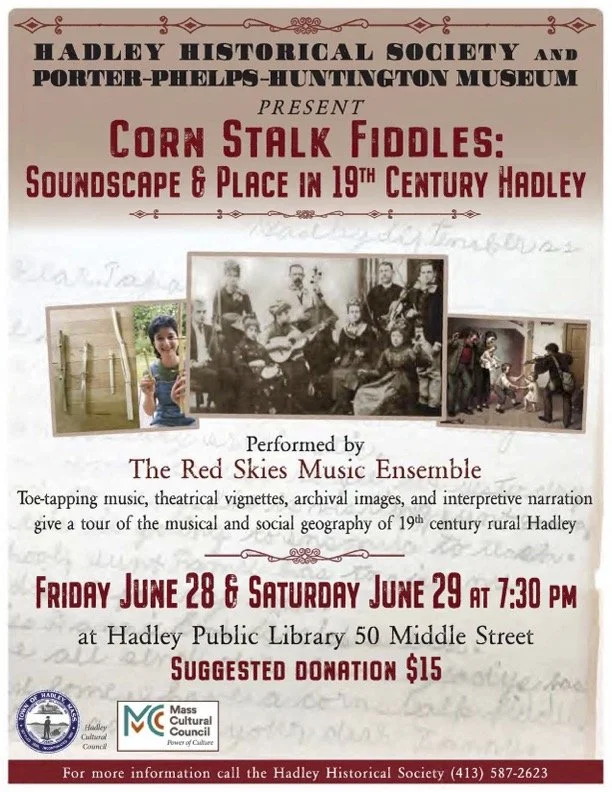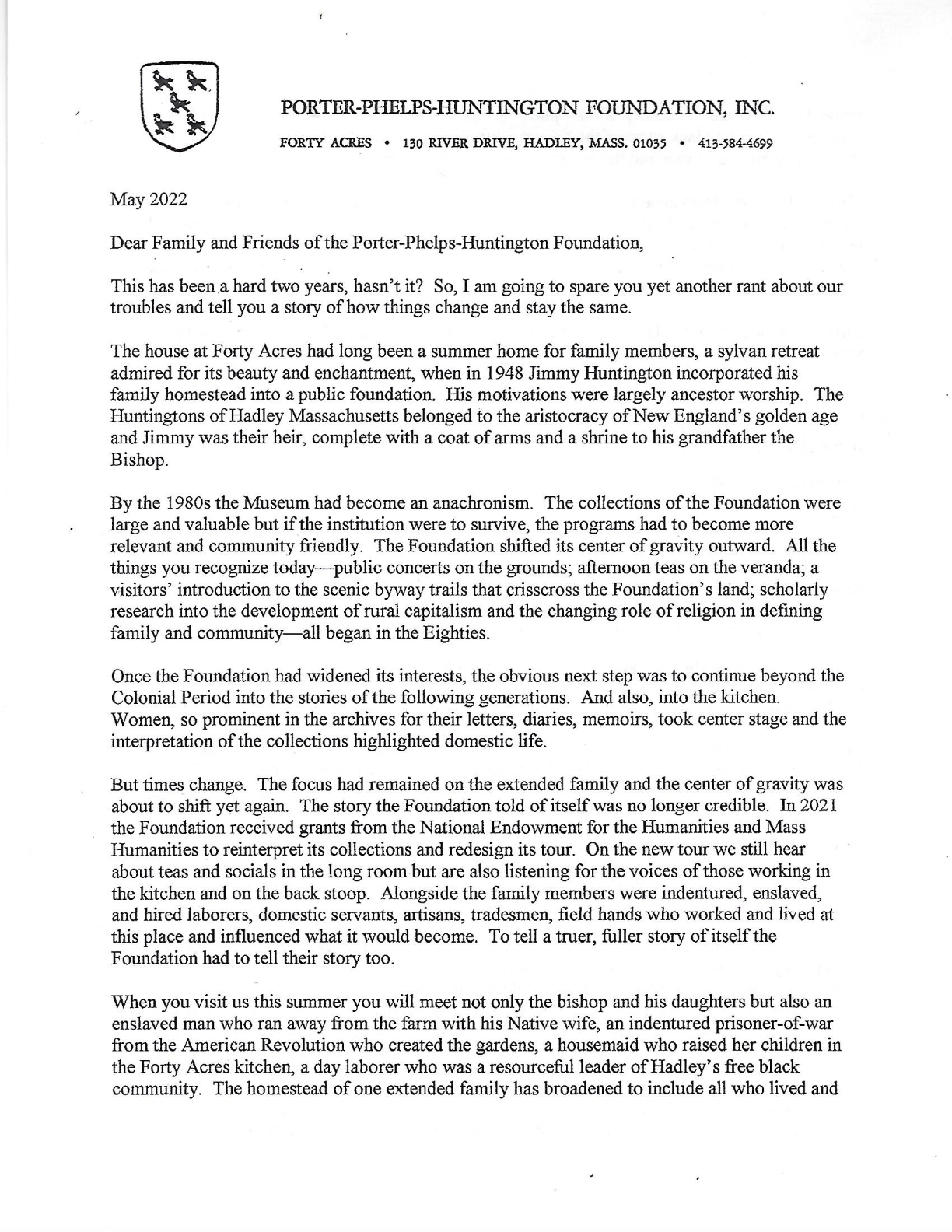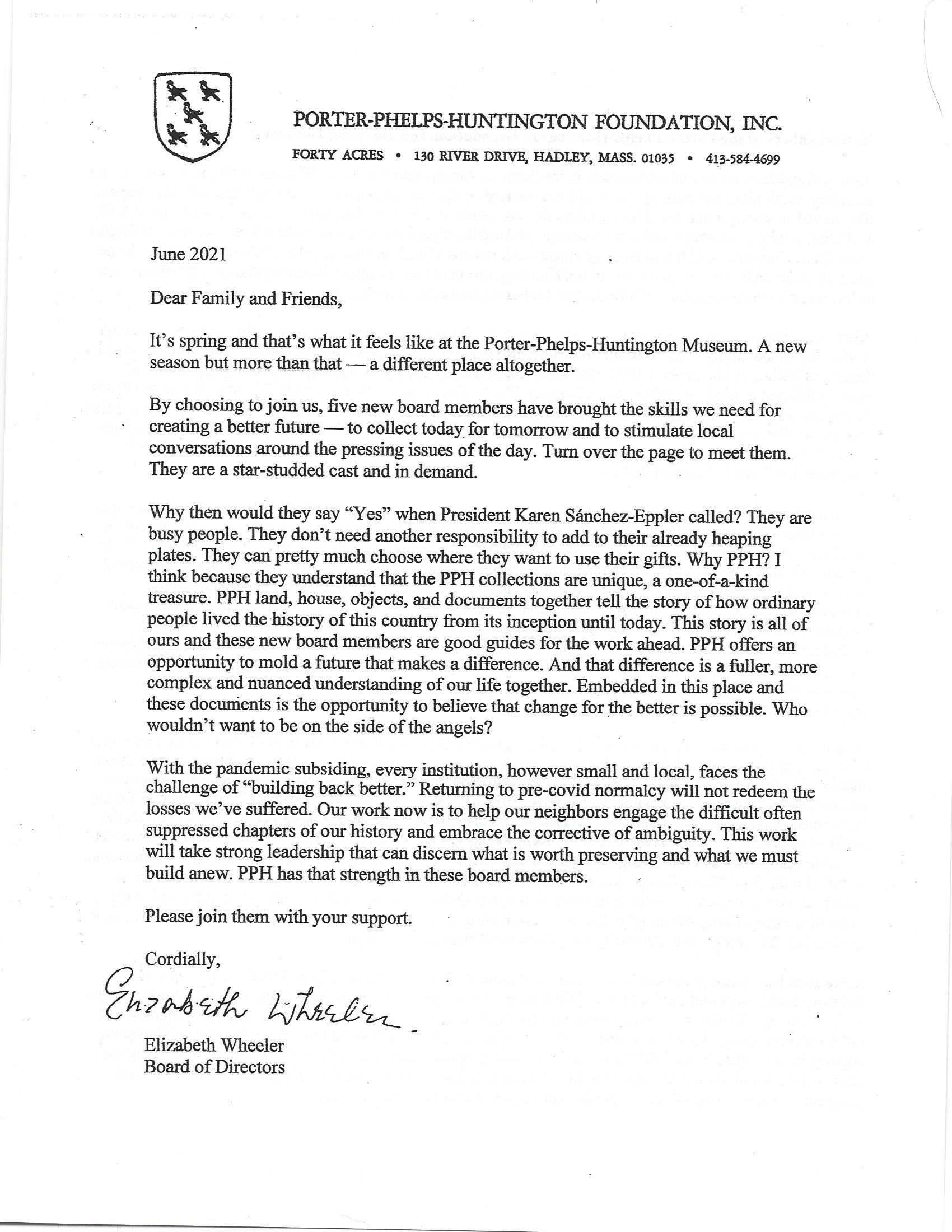July 3rd Stories of Slavery & Independence
TONIGHT! June 29th 7:30 The Red Skies Music Ensemble’s Corn Stalk Fiddles: Soundscape and Place in 19th Century Hadley. At the Hadley Library (read more below)
THIS WEEK! July 3rd 6:30 Stories of Slavery and Independence, a remembrance of six enslaved African Americans, Zebulon Prutt, Caesar Phelps and Margaret (Peg) Bowen, and her daughters and granddaughters Roasanna, Phillis, and Phillis. This story telling event features freedom songs with Jacqueline Wallace, director of the Amherst Area Gospel Choir, and a communal reading of Frederick Douglass’s influential address "What to the Slave is the Fourth of July?". (read more below)
Stories of Slavery and Independence shares new stories of Zebulon Prutt, Caesar Phelps, Margaret (Peg) Bowen and her daughters and granddaughter, all enslaved on the Porter-Phelps farm in the late 18th century, and the surprising ways their enslavement was linked to the campaign for American Independence. A decade before the American Colonies declared independence, Zebulon Prutt attempted to self-emancipate, and his brother appears to have used the American Revolution itself as a means of freeing himself from the Chauncey family and their ardent Tory sympathies. In 1776, Cesar Phelps, serving in the Revolutionary army, sent an extraordinary letter from Fort Ticonderoga to his enslaver, Charles Phelps. In it, Cesar skillfully negotiated the precarity of enslavement and military service in a war of liberation that would not free him. Cesar’s letter exemplifies the ironies Frederic Douglass describes in "What to the Slave is the Fourth of July?". A few years later, in 1778, Peg Bowen was returned to enslavement in Massachusetts by Jonas Fay, the principal author of the 1777 Vermont Constitution. The contradiction of the Fays not emancipating Peg Bowen in 1777, as Vermont’s new constitution required, is a stark instance of the unevenness of independence at the nation’s founding. In an even more searing emblem of the relations between servitude and independence, in April 1775, during the very week that the first shots of the American Revolution were fired in Lexington and Concord, one of Peg’s daughters gave birth and the other died, both of them and the new baby enslaved to the Phelps family. By sharing these stories in tandem with a multi-vocal public reading of Frederic Douglass’s profound text, this event offers an opportunity to reflect and converse on these tensions in community.
This commemorative storytelling event and concert is a Reading Frederick Douglass Together Mass Humanities program and is offered on Wednesday, July 3rd at 6:30 pm in the Sunken Garden at the Porter-Phelps-Huntington Museum, 130 River Drive, Route 47, Hadley MA 01035. Admission for this event is free. Picnickers are welcome on the museum’s grounds starting at 5:00 pm.
The Hadley Historical Society, in partnership with the Porter-Phelps-Huntington Museum, presents The Red Skies Music Ensemble’s Corn Stalk Fiddles: Soundscape and Place in 19th Century Hadley, a research-based interpretive tour of the musical and social geography of 19th century Hadley. Performances will take place at the Hadley Public Library, 50 Middle Street, on Friday June 28 at 7:30 pm and Saturday June 29 at 7:30 pm. (Reservations are not required. Suggested donation: $15.)
Written by Red Skies Artistic Director and Co-Founder Trudy Williams, with Jerry Bryant as musical director, the show offers a fascinating narration illustrated by live music and theatrical vignettes, archival images, and a special appearance by the children’s Corn Stalk Fiddle Choir, directed by Cindy Naughton, Music Director of the Amherst Community Theater.
Alan Weinberg, of the Hadley Historical Society, said that “the show is inspired and built around discovered items and documents in our collection and on research at the Porter-Phelps-Huntington Museum.”
Funded in part by the Massachusetts Cultural Council and the Hadley Cultural Council, performances will take place at the Hadley Public Library, 50 Middle Street, on Friday June 28 at 7:30 pm and Saturday June 29 at 7:30 pm. (Doors open at 7pm.) Reservations are not required. Suggested donation: $15.
Copyright © 2024 Porter-Phelps-Huntington Foundation, All rights reserved.
The Porter-Phelps-Huntington House, also known as Forty Acres, is an 18th-century farm in the Connecticut River Valley that today interprets life in rural New England over three centuries. The Porter-Phelps-Huntington House Museum occupies the unceded land of the Nonotuck people.
pphmuseum.org
130 River Drive
Hadley, MA 01035



































